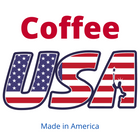OFFICE BREAKROOM SOLUTIONS
PREMIUM CUSTOMER SUPPORT
30 DAY HASSLE FREE RETURN
OVER A DECADE OF EXPERIENCE
CERIFIED EXPERTS
INTERIOR DESIGN SALE
CHECK OUT THE BLOG
Featured Products
-
FOR YOUR HOME
-
FOR THE OFFICE
-
ENTERPRISE SOLUTIONS
Caffeine Levels in Coffee | How Much Caffeine in Coffee
On average, a single arabica coffee bean contains
- 1.9 milligrams of caffeine (1.2 – 1.5g of caffeine per 100g).
- A single robusta coffee bean has 2.9 milligrams of caffeine (2.2 – 2.7g of caffeine per 100g).
- A 250ml (8.5fl oz) cup of arabica filter coffee contains 100 milligrams of caffeine
Caffeine levels in coffee vary even more than simply being caffeinated or decaffeinated. The roast of the coffee and the coffee bean play a large role in how much caffeine the coffee contains. Understanding how these affect the caffeine levels can help coffee drinkers choose a coffee that best suits their needs. Caffeine levels in coffee can vary dramatically based on the specific coffee bean that is used to make the coffee. This is an interesting and often helpful fact that many people do not realize. Understanding how the coffee bean varietal affects the caffeine level of the coffee can be helpful in choosing the coffee that is best for them.
The coffee bean is the primary source of caffeine for people although it is also found in tea leaves and other plants that are used in beverages and consumables. The caffeine levels in coffee can vary greatly from that of tea and soft drinks and even within its own varietals. It has even been shown that beans taken from the same coffee bush can have different levels of caffeine. A typical espresso shot, or one ounce of Arabic coffee, contains approximately 40 milligrams of caffeine while a 4 ounce cup of Arabica drip brewed coffee contains approximately 100 milligrams. The typical American coffee cup is at least 8 ounces, if not more, which makes a cup of Arabica coffee have 200 milligrams of caffeine. The Robusta bean contains more caffeine and thus higher caffeine levels in coffee brewed from the beans than the Arabica bean. There are other factors that can alter the level of caffeine including the brewing method. A simple idea of how much caffeine is contained in a 7 oz. cup of coffee based on brewing methods is that the highest caffeine content is found in drip coffee, which is 115-175 milligrams, depending on the bean. The lower end is instant decaffeinated coffee with only 2-3 milligrams per 7 oz. Most people tend to think espresso is the highest caffeine content and the answer is both yes and no. Espresso has 100 milligrams of caffeine per serving which is 1.5 to 2 oz. Most people don't order more than one serving of espresso so it is lower than drip coffee. However, when a double, triple or even quadruple shot is added to drip coffee the caffeine levels soar upwards of 500 milligrams. Other factors that influence the caffeine levels in coffee include the bean varietal and the roasting process.
The Tanzanian Peaberry coffee bean has a 1.42% caffeine content while the Yemen Mocha Mattari has only 1.01% caffeine. Guatemalan and Kona beans are high in caffeine with 1.20 to 1.32% caffeine and Zimbabwe and Ethiopian Harrar having lower levels around 1.10% and 1.13% respectively. The coffee roast plays a huge role in the caffeine levels due to the roasting process pulling the caffeine to the top of the bean. Darker roasts have higher percentage levels of caffeine with Colombian Supremo 1.37% and Mocha Java having 1.17% caffeine. These numbers show that caffeine varies from bean to bean and roast to roast. Coffee levels in caffeine vary greatly which means that a person who needs to decrease their caffeine does not necessarily have to switch to decaffeinated coffee to lower their caffeine content. These people can choose a lighter roasted coffee or a coffee bean with a lower content of caffeine in order to reduce their consumption of caffeine.



